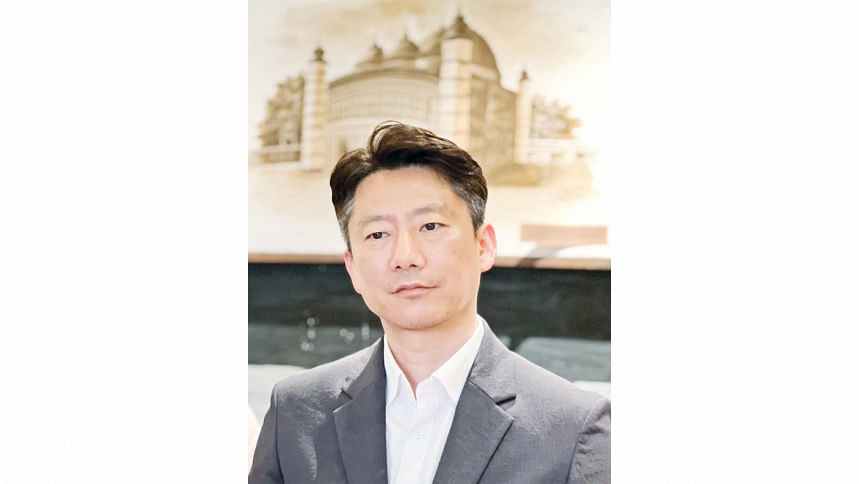Bangladesh can learn from Korean experience in farm mechanisation

The Republic of Korea is now enjoying surplus rice production and one of the major factors that enabled the East Asian nation to become self-sufficient in this regard was farm mechanisation.
So, Bangladesh can learn a lot from the Korean experience, especially in the use of agricultural machinery, said Sang Moon Byun, director of the foodgrain policy division at the Ministry of Agriculture, Food and Rural Affairs (MAFRA) of Korea.
Byun made these comments in an interview in mid-July during a two-day visit to Dhaka to hand over rice to the local office of the World Food Programme (WFP).
Last month, Korea provided 15,000 tonnes of rice to the WFP, which is an organisation within the United Nations.
The donation was used to provide food assistance and nutrition support to Rohingya refugees in Cox's Bazar and Bhasan Char.
According to the WFP, 15,000 tonnes of rice is sufficient to feed around one million refugees for 1.5 months.
Informing that Korea attained self-sufficiency in rice production in the late 1970s, Byun added that MAFRA has institutions dedicated to researching agricultural technology.
So, governments of developing countries may have something to learn from the East Asian nation.
"Also, we can go for technical cooperation," he said, adding that if the government of Bangladesh expresses an interest in cooperating to adopt agricultural technology, then ministry would support the initiative through the local embassy.
He pointed out that rice cultivation in Korea is fully mechanised from the tilling stage to harvesting and emphasised that land use for agriculture must be organised, not scattered.
"Another thing to consider is the irrigation system. If you want to mechanise agriculture, some basic things must be done first," he added.
Furthermore, the government needs to play a leading role in farm mechanisation because the private sector cannot do it alone, he said.
"So, it should be a joint initiative between them," he added.
Byun said another consideration would be ensuring the sustainability of such initiatives by training farmers in the use of modern machinery.
Most commercial farmers in Korea operated on a small scale in the past as they did not have the funds to purchase agricultural machinery. So, the Korean government helped the farmers purchase machinery, thereby facilitating farm mechanisation.
In a bid to boost its efforts, the Korean government requested farmers to grow only one crop, such as rice. By doing so, Korea was able to invest in productivity.
However, Byun said the Korean government did not necessarily restrict the farmers' freedom in choosing what they should cultivate. Instead, they were given examples of crops that were more suitable for the land. In that regard, rice ensured maximum productivity.
"But as we now have surplus rice, the government is recommending farmers plant beans instead," he added.
Byun also informed that the Korean government was focusing on the research and development of new rice varieties and agricultural technology.
"Another priority is investing in infrastructure that will help the country adapt to climate change," he said.

 For all latest news, follow The Daily Star's Google News channel.
For all latest news, follow The Daily Star's Google News channel. 



Comments